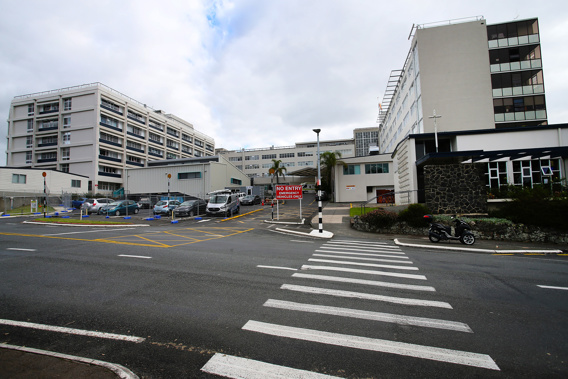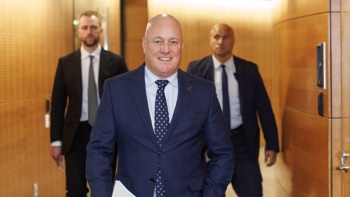
“The problem with health is that it is run by health.” According to Ian Powell, the former boss of the union representing salaried medical specialists, this is the view of the Prime Minister. When it comes to the health sector, Powell is a man known for keeping his ear very close to the ground. So, the chances are high that Christopher Luxon does, indeed, believe that the “problem with health is that it is run by health”.
The problem with politicians who say such things (a group which, according to Powell, includes the former Labour Prime Minister Jacinda Ardern and at least two of her health ministers) is that it identifies them as ardent followers of Public Choice Theory (PCT). Given that PCT wrecked the New Zealand public service back in the 1980s and 90s, and continues to damage it in the 21st century, speculation that the Prime Minister might be a fan will not be received with enthusiasm by New Zealand’s 40,000 public servants.
In its essence, PCT holds that administrators and legislators have a strong tendency to put their own professional and/or political interests ahead of those of the public. If you put professional educators in charge of the education system, the followers of PCT argue, you will get a system that reflects the education profession’s understanding of what the system’s outputs should be. These may line up with what the public believes the education system should deliver, but according to PCT, the chances are high they will not.
Certainly, there are many people involved in the education sector who believe that Labour’s education policies, far from producing a system in which the public could have confidence, gave rise to a bloated Ministry of Education, in which, a cynic might reflect, only the Education Minister’s mother, and other noted New Zealand educationalists, could feel confident.
In light of New Zealand’s steadily declining educational performance, there will likely be more than a few (quite possibly including the present minister, Erica Stanford) who are firmly of the view that: The problem with education is that it is run by education. There can be no doubt whatsoever that it is the view of Act leader David Seymour.
The Act Party has always been a firm believer in PCT. In its view, anyone who has proved themselves capable of running a profitable business dedicated to supplying the public with baked beans is equally capable of running a cost-effective health system. More capable, arguably, because, coming to the health system unburdened by professional baggage, the former manager of the baked beans factory will see with much greater clarity the optimal means of delivering health care efficiently and effectively. If Powell is correct, the Prime Minister shares this view.
The problem with PCT is that it is just that – a theory. Delivering health care is not a bit like delivering baked beans. If something goes seriously wrong with the management of a baked beans factory, its profits fall and, worst-case scenario, it is forced to close. But, if the health system fails to deliver the services required to keep people alive, then they will begin to die in ever-increasing numbers. Politically, if not managerially, large numbers of people dying is a problem. A big one.

What’s more, unlike the baked beans business, where, should one enterprise fail, it is a relatively straightforward exercise to get another up and running, a nation’s health system cannot simply be shut down and replaced with another. Efficiently, or inefficiently, the health system has to remain open and functioning 24 hours a day, seven days a week, 365 days a year – forever.
Even more crucially, the people who deliver the services required of our health system are not unskilled process workers slopping baked beans into tin cans. Once the baked beans recipe has been settled on, and the cooking and processing machinery designed and installed, the input of professionals to the factory’s production is minimal. With health, the situation is almost exactly reversed.
The delivery of health care is almost entirely a professional affair and, since every human being is unique, that care is bespoke. It requires not just the input of one professional, but many, to produce the desired outcome: living, breathing human beings who, thanks to the multiple interventions of its highly skilled employees, emerge from the nation’s health system in better shape than they entered it.
The other crucial aspect of health care is that it is at once fiercely personal and inescapably methodical. Nurses, doctors and specialists must deal with anxious, sometimes terrified, individuals, some of them terribly injured and suffering intense pain and distress. To fix these folk, health professionals struggle to remain both engaged and detached. Every hour of every day they are called upon to emote empathically, and think clinically. No other profession – except, perhaps, the profession of arms – requires the same combination of comradeship, co-operation and collegiality as the profession of medicine.
Baked beans do not scream.
So, no, Prime Minister, the problem with health is not that it is run by health, the problem is that, in the 30-or-so years since the National Party last attempted to run our health system like a baked beans factory, it has been forced to endure the forced insertion of multiple layers of administrators whose jobs, in accordance with the dictates of PCT, are all about managing health professionals, and rationing the human, pharmaceutical and mechanical resources they need to do their jobs. In large measure, the burgeoning costs of our health system are attributable to the ceaseless growth in the numbers, not of doctors and nurses, but managers.
You want to save money in health, Prime Minister? Then let the people in the health system run the health system. They know, from first-hand experience, what works – and what doesn’t. If there’s money to be saved, then ask them to work out new and practical ways of saving it.
Unlike our present bureaucratic behemoth, a health system run by the people who work in it could operate not on the basis of inflexible line management and bloodless accounting principles – but of trust. Doctors will not ask doctors to go on working until they are ready to drop – and/or make mistakes. Nurses will not run their stations at half- or quarter-strength for days at a time. In short, health professionals will give you a health system worthy of its name.
Sadly, New Zealand’s Prime Minister is a man for whom the virtues of line management and strict accounting principles are beyond question. As a former corporate CEO, he knows that the provision of a surplus and its disproportionate distribution to shareholders, as opposed to employees, is the sine qua non of good business management.
Translated into policies acceptable to the National Party, that means taxing and spending less, in order to keep the distribution of wealth in New Zealand society as unchanged as possible. Which, in turn, makes it necessary to operate our health system in the same way as a baked beans factory.
Just don’t ask what’s inside the cans.
Take your Radio, Podcasts and Music with you









